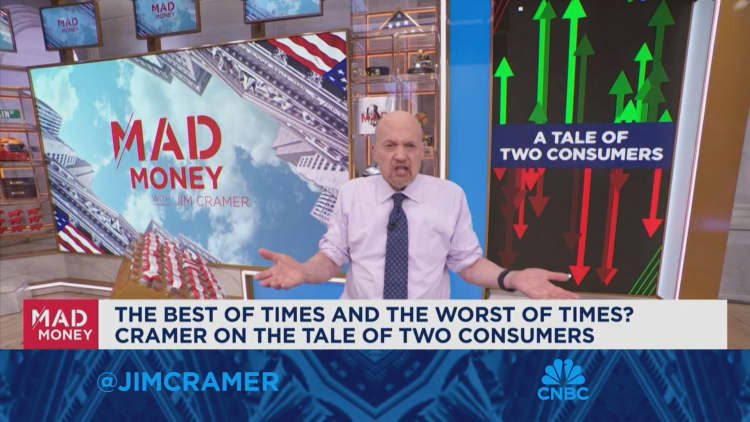New consumer brands grab market share in China, South Korea: Bain & Co
Customers shop at a supermarket in Qingzhou city, East China’s Shandong province on Jan 12, 2024.
Future Publishing | Future Publishing | Getty Images
The rise of online shopping, social media and easier access to factories are driving the growth of new consumer brands in parts of Asia — putting pressure on traditional industry giants.
Over the last several years, such upstart consumer brands have been gaining market share in China and South Korea, according to a report from Bain and Company released Monday.
“The consumer products company of the future is going to need to be constantly reinventing its brand portfolio,” said David Zehner, head of consumer practice at Bain.
“If you’re able to both leverage the advantages that your scale and your incumbent position creates, while also being nimble and agile and responsive to the consumer,” he said, “then there is a chance that you can win, even despite the difficult environment, because there are so many insurgents.”
Bain defines an insurgent brand as a business that generates more than $25 million in annual revenues, has grown more than 10 times in their category’s average growth rate over the last five years and is independent or has been bought by a large firm in the last 2 years.

Incumbents are leaders in the sector and have a firm position in the market.
For example, sponge brand Scrub Daddy is an insurgent brand while its competitor Scotch-Brite is an incumbent one.
The company studied 23 consumer product goods categories across 11 Asia-Pacific markets from 2018 to 2022 to find out whether insurgent and incumbent brands were thriving or struggling in the countries surveyed.
China and South Korea stood out as markets where insurgent brands were doing particularly well.
Incumbent brands only grabbed market share in eight out of 23 sectors in China — sports, bath and shower, skincare, confectionery, sweet biscuits, milk formula, drinking milk products and juice, the Bain report said.
In South Korea, incumbent brands dominated just four sectors — fragrances, confectionery, diapers and bottled water, the report showed.
E-commerce boost
China and South Korea’s thriving e-commerce scene has made it easier for insurgents to penetrate these highly competitive sectors, Zehner highlighted.
Online shopping accounted for 34% of 2022 retail sales in South Korea, and 27% of such sales in China, the report said.
“We see a lot of brand launches in a market like China because it’s easy to reach consumers. It has become quite tough as an incumbent brand in those categories because you constantly have all of these new competitors,” Zehner told CNBC.

The country’s “insurgent friendly” market is also due to the boom in live streaming, he added, referring to a sales practice where sellers show and talk about products on social media to attract customers.
High penetration of e-commerce in Indonesia (26%) and Singapore (13%) also gave insurgent brands a boost. Incumbent ones only grew market share in seven and three…
Read More: New consumer brands grab market share in China, South Korea: Bain & Co
